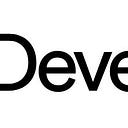Why more and more people are measuring their metabolism: “The bathroom scale is an outdated way to stay fit”
“It’s easier to gain weight once you get older — but I had made my decision: I was going to stay in shape.” When the biomedical scientist and biohacker Lena began to gain weight she used new technology to help her stop.
Lena is a biomedical scientist by profession and has always cared about her health from a biochemical perspective. “I knew that it would be easier to gain weight around menopause age but when I ended up there myself, I was shocked how difficult it is to actually do something about it.”
Lena is a ‘biohacker’ — someone who actively tries to optimise her health. She already lived a healthy life: she had eaten LCHF (Low Carb High Fat) for more than ten years and practiced intermittent fasting. But with time it became harder to estimate the effect dietary choices had on her weight. “Before, I could eat more carbohydrates without gaining weight, for example”, Lena explains. “I could never have imagined that it would turn so difficult. I felt defeated and helpless: the kilos stuck to me like a magnet. Now I, personally, understand what a challenge it can be to stay fit when your biochemistry is working against you.”
To better understand her “new menopause me” Lena began to use an acetone breathalyser (Acetrack). “Health profiles and athletes have been using acetone readers for a while now and there are a handful of different devices on the market. I discovered Acetrack through Deversify — a company that specialises in health measurements via bio markers. Now I can instantly see if my body is burning fat and how much. In this way I can plan my food intake and eat more or less depending on how much energy my body consumes.”
Acetone is a rest product that is detectable when the liver is breaking down fat. This process has traditionally been measured through analysis of urine or blood samples. However, now this can be done in a less messy, non-invasive way through exhaled breath. By measuring the amount of acetone in exhaled air you can see if your body has switched to fat-based energy consumption, she explains. “It isn’t about either focusing on fats or carbohydrates but about energy consumption as such. The device doesn’t discriminate different energy sources, which I find helpful.”
“I like measuring my health and want exact evidence for what works and not”, Lena continues. “Now I can plan my dietary choices better and eat more when I’m burning more, and I can also avoid foods that put breaks on my metabolism. Carbohydrates and especially sugar can encourage the body to store fat rather than to burn it. Thanks to my breathalyser I have the chance to discover hidden sugar in foods I earlier used to eat often. Some dairy products, for example — not to mention wok-sauces and much restaurant food…”
Not only biohackers like Lena are using devices like Acetrack — measuring metabolism is getting more and more popular and common. The IT consultant Robert explains his usage: “measuring fat burning rates is not only of interest to ‘health specialists’ but people like myself too. To be honest, I would like to think as little as possible about staying in shape.”
Both Lena and Robert are measuring their metabolism in order to navigate their health better and they are in good company. ’Acetone tracking’ is turning increasingly popular in Scandinavia, the US, the UK and Korea.
“Is it time to throw out the bathroom scale?”, we wonder.
“No, but now that technology has come this far the bathroom scale is an outdated way to keep in shape and measure health”, says Lena. “I measure my metabolism first — then I celebrate my kilos”.
